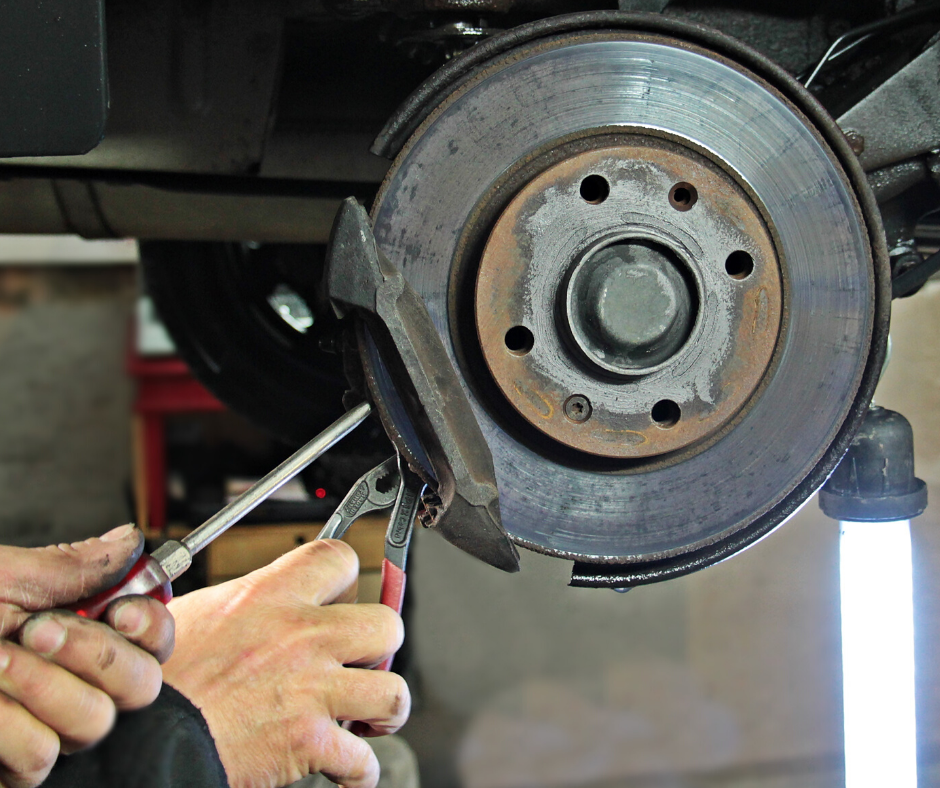Jun 8, 2020

Our brakes are one of the most important parts of any vehicle, so ensuring they are working properly is imperative to safety on the roads. Modern brakes consist of a cast-iron disc squeezed between two brake pads which are held in place by callipers.
When you apply pressure to the brake pedal, hydraulic pressure causes the brake pads to clamp down on the brake disc creating friction. This then scrubs speed from the tyres, allowing the car to slow down and eventually stop.
If you have been driving your car recently and noticed that it squeaks when the brakes are applied, it can be a massive irritation and very worrying. While it is normal for your brakes to make a small amount of noise, especially when they aren’t warm, excessive and continuous squeaking brake pads could mean greater cause for concern.
Most brake pads will be fitted with a wear indicator which will start making a squealing sound when your brake pads are thinning out and need to be changed.
Moisture collects on the brake rotors from overnight dew, condensation or rain and this will cause a thin layer of rust to form on the rotor surface. As the rotor turns the pads scrape the rust off the rotors, which can get caught on the leading edge of the brake pads eventually embedding into the leading edge resulting in squeaky brakes. Squeaky brakes caused by moisture is more likely to occur in the morning and will stop when they have had a chance to warm up.
Another problem that can cause your car to squeak when the brakes are applied is when the brake pads become glazed. If brake callipers stick it can cause the brake to stay partially applied, resulting in excessive heat and friction and causes the brake pads to harden and glaze. Glazed brakes are going to reduce stopping action and make a high pitch sound when you apply the brakes. Thankfully, this can be fixed quickly by a mechanic.
Most cars use semi-metallic brake pads which are comprised of metal shavings of copper, steel, graphite and brass bonded with resin. As well as this, they also contain some organic materials such as glass, rubber and Kevlar. If you go for a cheaper brake pad to save a few pounds, remember that they have a much higher metal content. Due to this, there are larger pieces of metal on the brake pad surface, which will cause your brakes to squeak.
Buying cheap brake pads can be more costly down the line, as it is harder to tell when you’ve reached the wear indicator. If your pads wear out, not only will they be less effective, they can damage your brake discs.
If you have been experiencing squeaky brakes and feel like you need a peace of mind it is best to have them checked by a professional. Thankfully, here at MyCarNeedsA.com, we offer the easiest way to find pre-approved garages and mechanics near you. Get your quote today! www.mycarneedsa.com/get-a-quote/